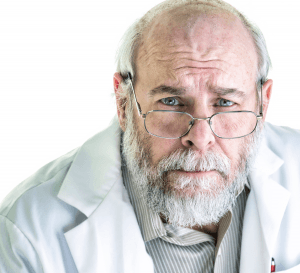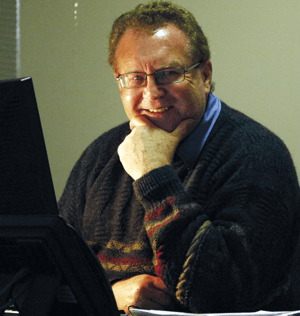 Doctors will soon be (if they are not already) swamped with the ailments of the elderly. Doctors and others who assist them may be seen as key to helping the elderly hold on to their faculties i.e. restorative rather than palliative solutions. What are the main problems doctors encounter (for the opinion of three doctors, see page 12)?
Doctors will soon be (if they are not already) swamped with the ailments of the elderly. Doctors and others who assist them may be seen as key to helping the elderly hold on to their faculties i.e. restorative rather than palliative solutions. What are the main problems doctors encounter (for the opinion of three doctors, see page 12)?
Hearing loss in the elderly is no laughing matter despite the picture of an old bloke clutching a horn to his ear and saying ‘eh?’. Worldwide, disabling hearing loss affects 432 million adults, 165 million of whom are over 65 years. In Australia, disabling hearing loss is said to affect 3% of the 15-50 age group and 63% of people over age 71.
Memory and cognitive loss. Dementia used to be a thing of old age. Not so these days. GPs can expect to see more people for memory tests (there are a host of online tests). Will we will find out why it is happening at a younger age? Or is it that more people are admitting to the problem rather than slink off to the dark recesses of our memories.
CVS disease. Get in a room of 60-year-olds and it is hard to find someone without a coronary stent, it seems. It used to be a talking point but now it is old hat. I suspect if we scratch doctors, many are on statins, and so are their patients. Statins don’t show any benefit if consumed by 70-year-olds without some other strong indication.

As a profession we are good at starting drugs but not good at stopping them. Hence, polypharmacy amongst the elderly is common, particularly in ACFs where the RN ensures the patient takes their ‘blue ones’, crushed or not.
Stroke thrombectomy relies on the personal skill of the doctor removing the clot as much as anything else (see story page 16). Done in quick time with careful selection of patients it has the potential to relieve at least 25% of strokes. And relief can be quite profound.
Repairing the hip or knee. According to a report on the prosthesis registry (remember the breast augmentation and metal-on-metal hip replacements?), 80% of those aged 80-89 survive at least five years after surgery, so revisions although unwelcome, are possible. Whole-of-population data reveals knee replacements have increased by 5% over the past 12 months. Of course, obese people do worse and need revisions and have complications more often. One of the important issues for the registry is how best to improve the results in patients with poor health or who are obese.
AHPRA and doctors. Senior doctors may be getting a raw deal, according to the Association for Senior Active Doctors (ASADA). The problem is that most specialists organise their own stepdown in their later years. Getting these people motivated and organised into a cohesive lobby group is proving difficult. I am not sure what the answer is but the CEO of ASADA (page 27) is frustrated at the injustice.
Where does all this put the younger doctor? Buried under an avalanche of aged caring? There is much to learn from those with entrepreneurial spirit (page 31), because if we are to handle the tidal wave of aged care heading our way we have to do things smarter and share the load. Otherwise needs will get swamped and no amount of Royal Commission findings will help. Technology will certainly help the huge logistics of aged care.
Most people who are elderly are well. Many elderly who die, are well, and asleep, having had a good life. Spare a thought for the older doctors, thinking of retirement. How are they positioned for a step-down?

